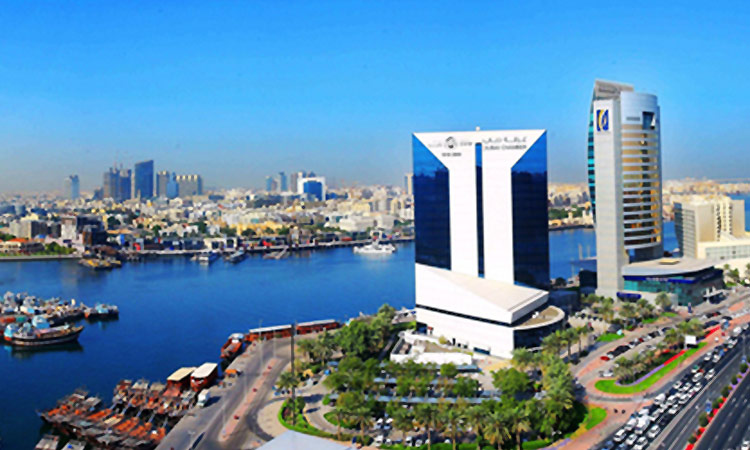
Dubai Chamber of Commerce and Industry, in cooperation with the Russian-UAE Business Council and the Chamber of Commerce and Industry of the Russian Federation, recently organised a virtual forum as part of its newly launched Dubai Global Partnership Series, which explored new avenues of economic cooperation between the emirate and Russia.
The virtual forum, was attended by 150 participants from 12 countries, examined high-potential bilateral trade and investment opportunities in the areas of ICT, technology and innovation.
Speakers included Hamad Buamim, President & CEO of Dubai Chamber of Commerce and Industry; Maxim Fateev, Vice President of the Chamber of Commerce and Industry of the Russian Federation; Alexei Busev, Executive Director of the Russian-UAE Business Council and representative of the Moscow Chamber of Commerce and Industry; Ammar Al Malik, Managing Director of Dubai Internet City; Hans Henrik Christensen, Vice President of the Dubai Technology Entrepreneurship Campus (Dtec); Evgeniy Borisov, Deputy Director of the Internet Initiatives Development Fund (Russia), and Omar Khan, Director of International Offices at Dubai Chamber.
During his opening speech, Buamim stressed that this forum was organised at a time when UAE-Russia relations are expanding across various economic fields. He described the formation of the Russian-Emirati Business Council a few months ago is a clear indication of growing interest on both sides to take trade ties to the next level.
In his welcome remarks, Buamim revealed that non-oil trade between Dubai and Russia has increased steadily in recent years to reach Dhs 7.7 billion in 2020, a positive trend supported by several developments and factors such as high-level visits, the easing visa restrictions and the signing strategic cooperation agreements.
The UAE and Russian economies share many synergies including their strong focus on fostering innovation, economic diversification, global trade and foreign investment. Much like Russia, Dubai is currently in the midst of rapid digital transformation led by Covid-19, while it invests heavily in its smart city vision and Fourth Industrial Revolution technologies, said Buamim, adding that Russia’s information technology (IT) outsourcing industry in particular offers a lot of scope for cooperation with the UAE.
Buamim reiterated Dubai Chamber’s strong commitment to ensuring that UAE-Russia trade ties continue to expand and flourish in the future and noted that Chamber’s international office in Baku, Azerbaijan is playing a crucial role in identifying business opportunities in Russia and Eurasian markets and promoting Dubai as a preferred business hub for Russian companies.
For his part, Fateev shared valuable insights on the current state of UAE-Russia trade and elaborated on the Chamber’s efforts to build bridges between the two business communities. He stressed the importance of platforms like the Dubai Global Partnership Series, which create channels for open and constructive dialogue that can facilitate bilateral trade.
Khan delivered an informative presentation on Dubai’s economy, business environment and competitive advantages, and examined recent developments that have impacted the UAE-Russia trade relationship.
The forum concluded with a panel discussion that examined Dubai’s status as a preferred business hub for ground for high-tech companies from Russia, key sectors of mutual interest for Russian and UAE companies and investors, and practical advice on how companies can establish a presence in the Dubai and Russian markets.
Meanwhile, Dubai, UAE: New business incentives, initiatives, innovations, policies and infrastructure have strengthened Dubai’s status as global gateway for trading commodities in the Covid-19 era, industry experts said during the latest instalment of the Dubai Chamber Interview Series.
The virtual event featured an in-depth discussion with Ahmed Bin Sulayem, Executive Chairman and CEO of Dubai Multi Commodities Centre (DMCC), who shed light on key trends and factors driving DMCC’s membership and positioning Dubai as a preferred hub for handling, importing and exporting gold, diamond, coffee, tea and spices.
He also elaborated on the free zone’s value-added services and recent efforts to attract commodity traders from various regions of the world and boost trade flows from and to the emirate.
Attended by 277 from 45 countries, including members of business groups and business councils, representatives from economic and professional bodies and industry stakeholders, the event highlighted competitive advantages offered to companies that are keen to leverage Dubai as a commodities trading hub.
Such advantages include Dubai’s world-class infrastructure, excellent logistics facilities such as DMCC’s coffee and tea centres, 100% foreign ownership, long-term residency for investors, as well as other initiatives such as the World Logistics Passport that are creating new opportunities for boosting Dubai’s trade with promising markets around the world.












